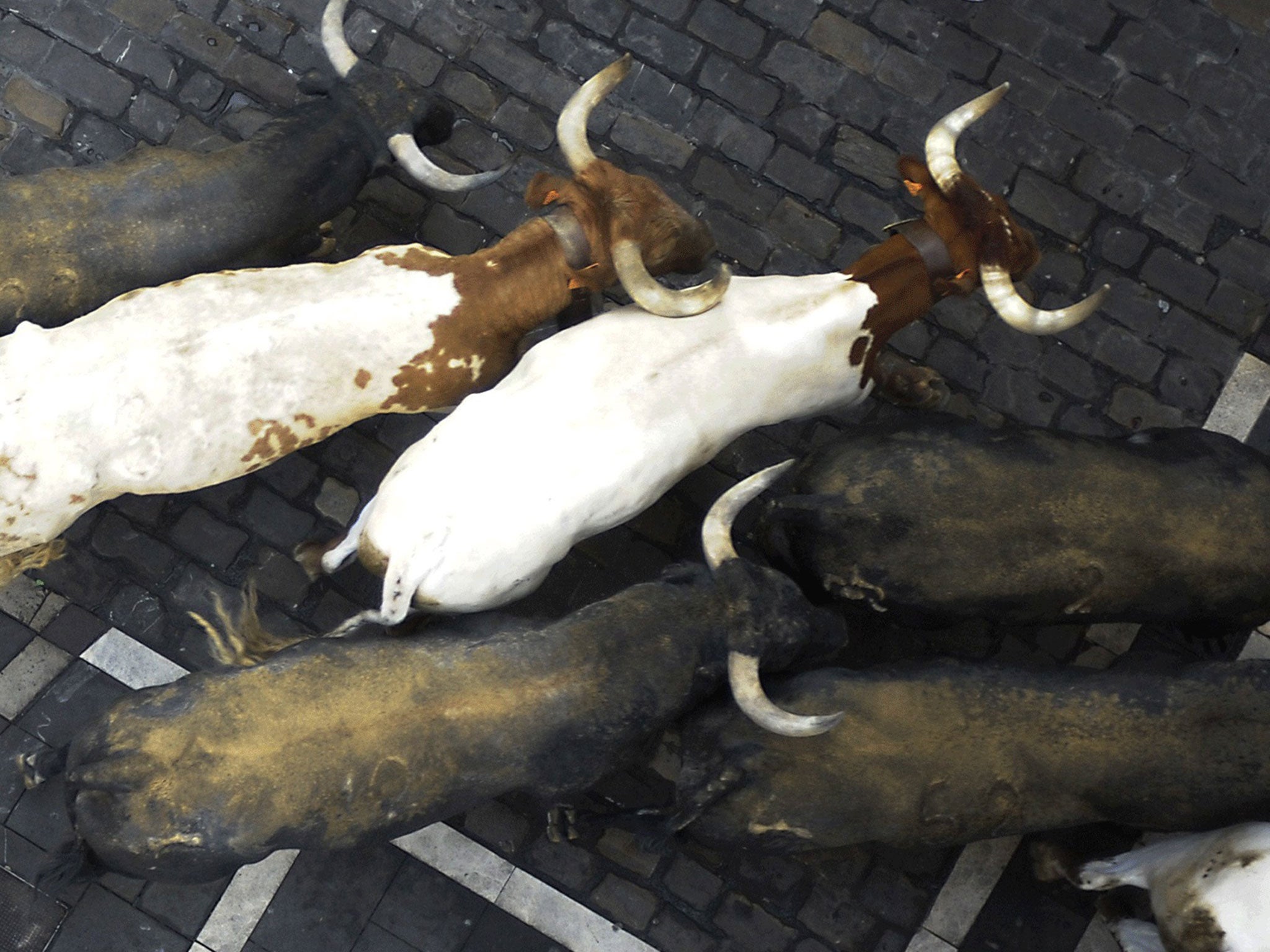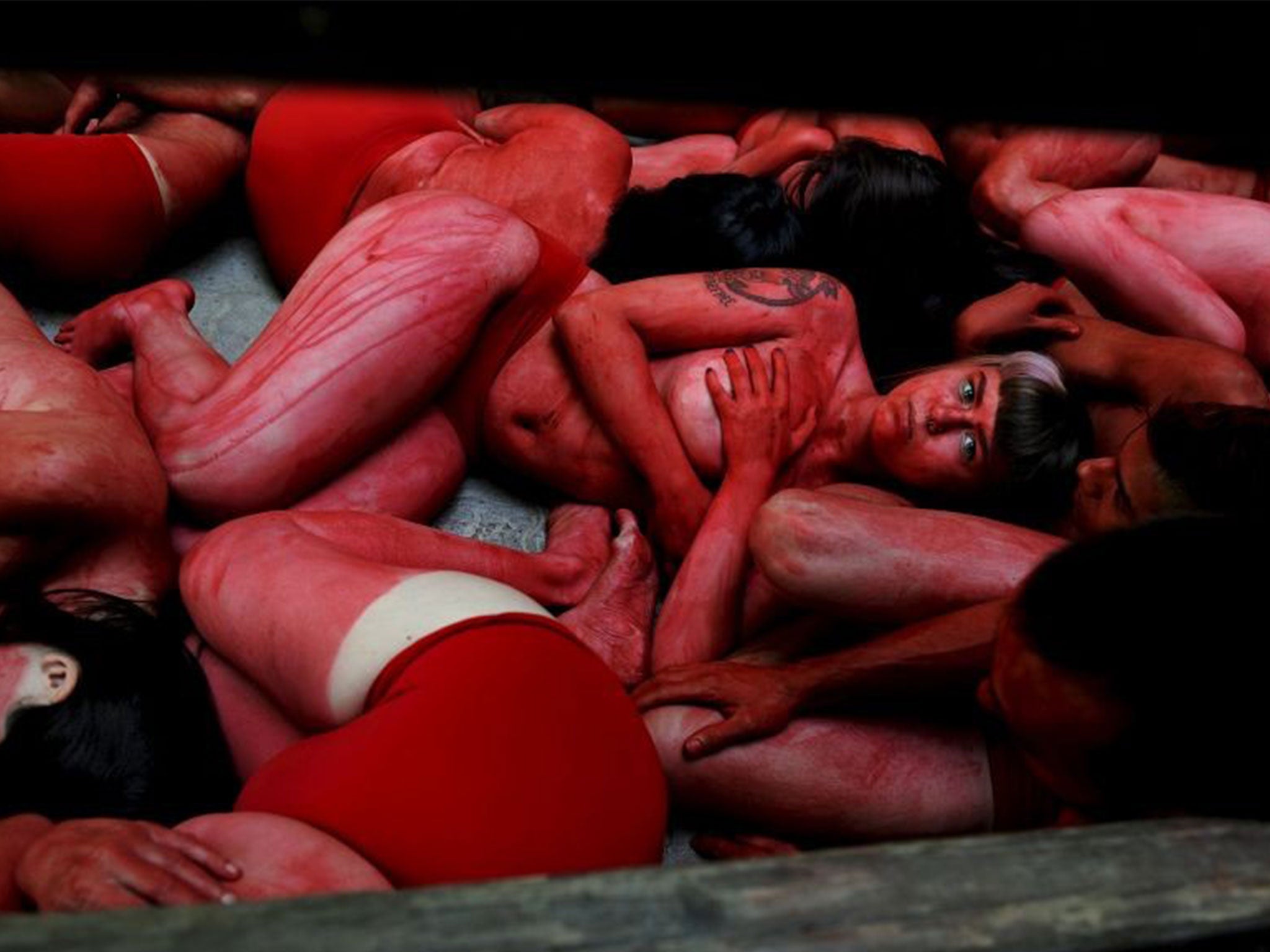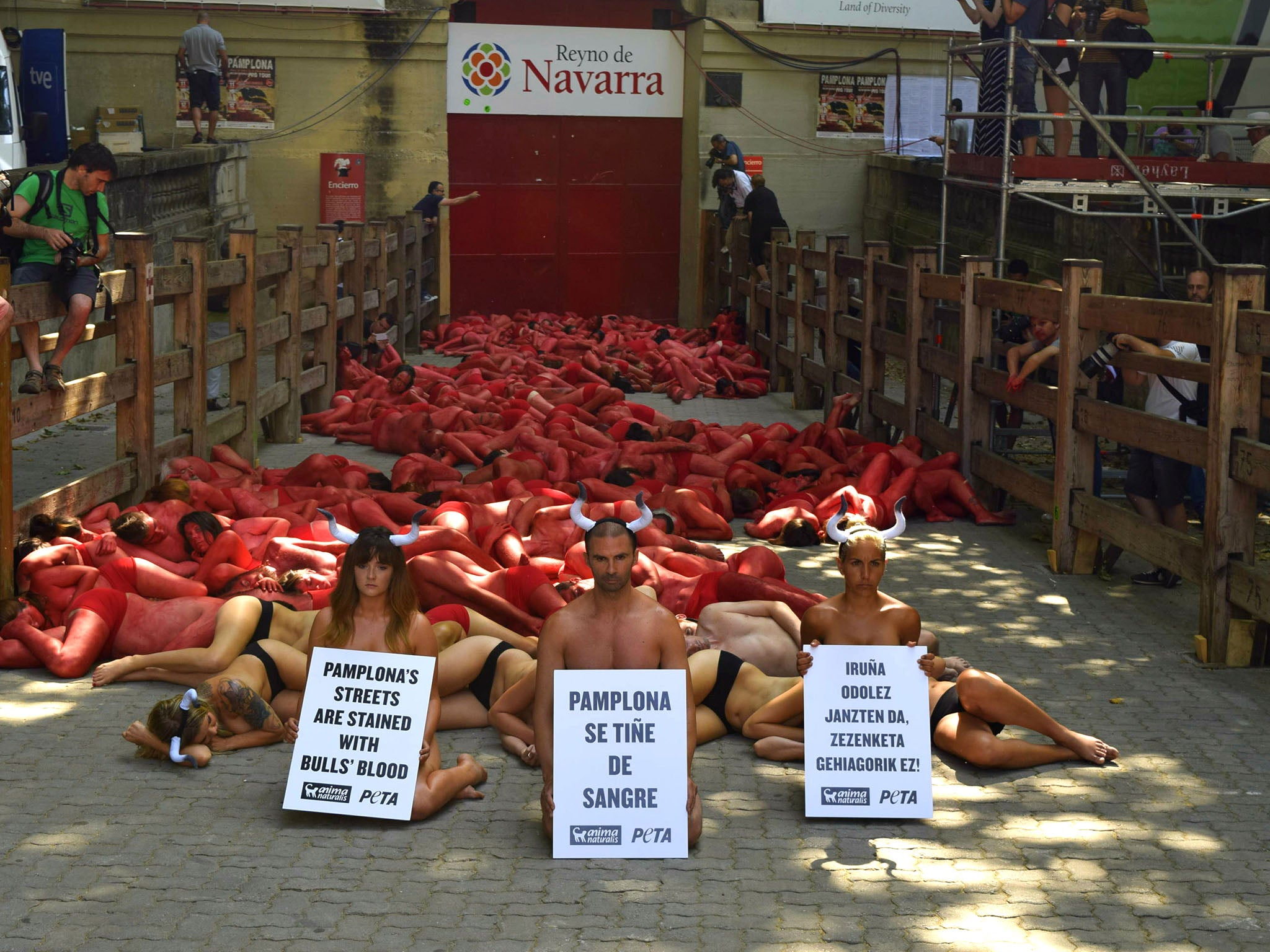Pedreguer bull-running death: French tourist is gored to death at festival in Spain
Officials in Pedreguer, in Alicante, said the 44-year-old had been standing with friends when he was gored by one of the bulls

Your support helps us to tell the story
From reproductive rights to climate change to Big Tech, The Independent is on the ground when the story is developing. Whether it's investigating the financials of Elon Musk's pro-Trump PAC or producing our latest documentary, 'The A Word', which shines a light on the American women fighting for reproductive rights, we know how important it is to parse out the facts from the messaging.
At such a critical moment in US history, we need reporters on the ground. Your donation allows us to keep sending journalists to speak to both sides of the story.
The Independent is trusted by Americans across the entire political spectrum. And unlike many other quality news outlets, we choose not to lock Americans out of our reporting and analysis with paywalls. We believe quality journalism should be available to everyone, paid for by those who can afford it.
Your support makes all the difference.A French tourist has been gored to death during a bull-running event at a festival in eastern Spain.
Officials in Pedreguer, in Alicante, said the 44-year-old man had been standing with friends when he was gored by one of the bulls during the event held as part of the town's summer festival.
The death came as Spain's most famous bull-running festival, San Fermin in Pamplona, came to an end on Tuesday.
It is the third death by goring recorded at festivals across Spain in recent weeks, although none of them were at Pamplona.
Bull runs are a traditional part of the summer festival season across Spain. Ten people, including four Americans, were gored at the Pamplona festival this year, although none of them died.
There have been a total of 15 fatal gorings at the famous festival since 1924.
In the final run at Pamplona this year, hundreds of people raced six fighting bulls, with one charging into a group of runners and knocking about ten people to the ground.
The July fiesta was immortalised in Ernest Hemingway's 1926 novel "The Sun Also Rises" and dates back to the 16th century.
Each year thousands of tourists travel to take part in the run, which sees people racing with the bulls through a narrow course from a holding pen to the city's bullring.
The bulls are then killed by professional matadors each afternoon during the course of the festival.
Earlier this month more than 100 semi-naked activists covered in blood red paint launched a protest against the event outside the entrance to the Pamplona bullring.


The activists, from People for the Ethical Treatment of Animals (PETA), and AnimaNaturalis, held up signs saying: "Pamplona's streets are stained with bulls' blood."
PETA Director Mimi Bekhechi said: "PETA is calling on Spain to end its widely condemned Running of the Bulls event- and, with it, the horrific suffering and abuse of bulls."
Additional reporting by AP
Join our commenting forum
Join thought-provoking conversations, follow other Independent readers and see their replies
Comments